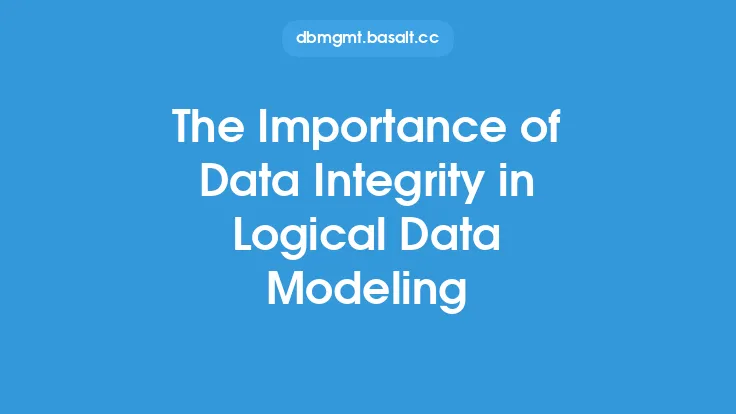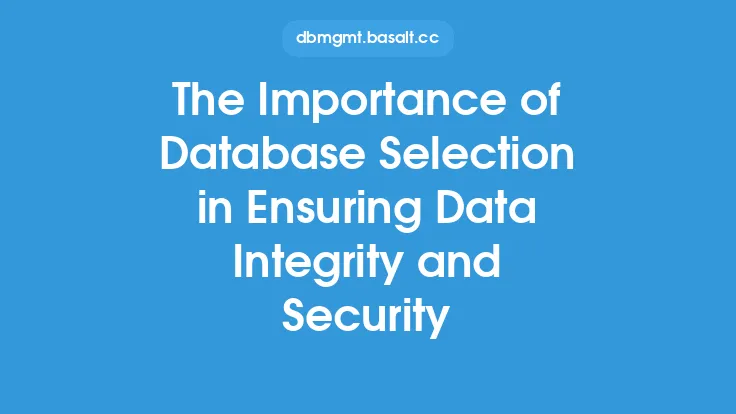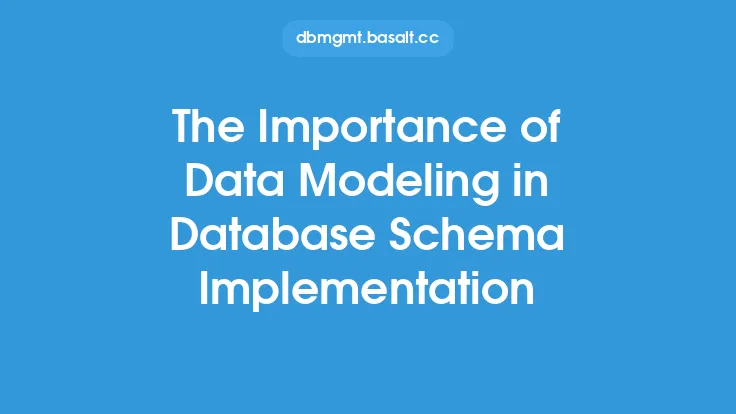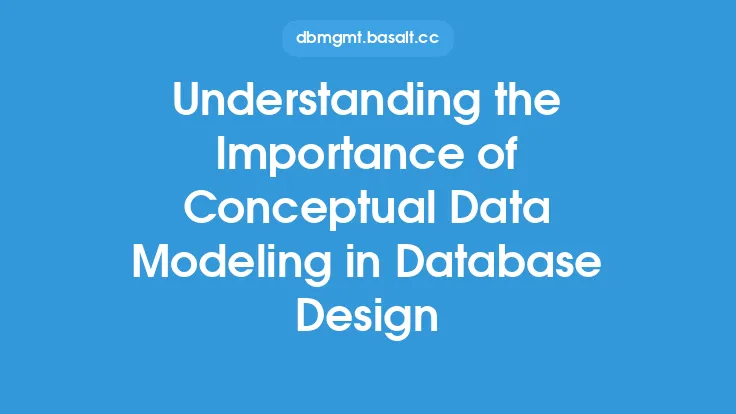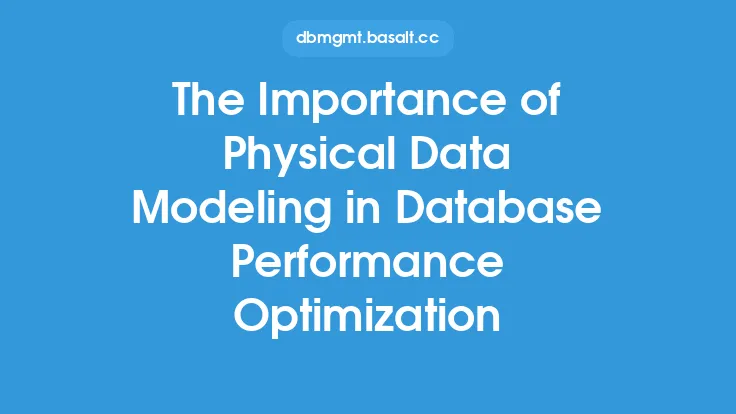Data integrity is a critical aspect of data modeling, as it ensures that the data stored in a database is accurate, complete, and consistent. It is the foundation upon which all other data modeling principles are built, and its importance cannot be overstated. In this article, we will delve into the world of data integrity, exploring its definition, importance, and best practices for implementation.
What is Data Integrity?
Data integrity refers to the accuracy, completeness, and consistency of data stored in a database. It involves ensuring that the data is free from errors, inconsistencies, and contradictions, and that it conforms to the rules and constraints defined in the data model. Data integrity is not just about storing data, but about storing data that is reliable, trustworthy, and meaningful. It is a critical aspect of data modeling, as it directly impacts the quality of the data and the decisions made based on that data.
Why is Data Integrity Important?
Data integrity is important for several reasons. Firstly, it ensures that the data stored in a database is accurate and reliable, which is critical for making informed decisions. Inaccurate or incomplete data can lead to poor decision-making, which can have serious consequences in business, healthcare, finance, and other industries. Secondly, data integrity helps to prevent data inconsistencies and contradictions, which can lead to errors and exceptions in applications and reports. Finally, data integrity is essential for maintaining data consistency across different systems and applications, which is critical in today's interconnected world.
Types of Data Integrity
There are several types of data integrity, including entity integrity, referential integrity, and domain integrity. Entity integrity refers to the uniqueness of each entity in a database, and ensures that each entity has a unique identifier. Referential integrity refers to the relationships between entities in a database, and ensures that these relationships are consistent and valid. Domain integrity refers to the validity of data within a specific domain or range, and ensures that the data conforms to the rules and constraints defined for that domain.
Best Practices for Implementing Data Integrity
Implementing data integrity requires a combination of technical and procedural measures. Some best practices for implementing data integrity include defining clear and concise data models, using data validation and verification techniques, implementing data normalization and denormalization techniques, and using data constraints and triggers to enforce data integrity rules. Additionally, it is essential to establish data governance policies and procedures, which define the roles and responsibilities of data stakeholders, and ensure that data is handled and managed consistently across the organization.
Data Integrity Constraints
Data integrity constraints are rules that are defined to ensure the accuracy, completeness, and consistency of data in a database. These constraints can be defined at the entity, attribute, or relationship level, and can include rules such as primary keys, foreign keys, unique constraints, and check constraints. Primary keys ensure that each entity has a unique identifier, while foreign keys ensure that relationships between entities are consistent and valid. Unique constraints ensure that each attribute has a unique value, while check constraints ensure that data conforms to specific rules and conditions.
Data Validation and Verification
Data validation and verification are critical components of data integrity, as they ensure that data is accurate and complete before it is stored in a database. Data validation involves checking data against a set of predefined rules and constraints, while data verification involves checking data against external sources or references. Some common data validation techniques include format checking, range checking, and checksum verification, while data verification techniques include data matching, data profiling, and data certification.
Data Integrity and Data Quality
Data integrity and data quality are closely related concepts, as data integrity is a critical component of data quality. Data quality refers to the overall accuracy, completeness, and consistency of data, while data integrity refers to the specific rules and constraints that ensure data accuracy and consistency. Ensuring data integrity is essential for maintaining high data quality, as it helps to prevent errors, inconsistencies, and contradictions in the data. Additionally, data integrity is essential for maintaining data consistency across different systems and applications, which is critical for ensuring data quality.
Conclusion
In conclusion, data integrity is a critical aspect of data modeling, as it ensures that the data stored in a database is accurate, complete, and consistent. It is essential for making informed decisions, preventing data inconsistencies and contradictions, and maintaining data consistency across different systems and applications. By implementing data integrity constraints, using data validation and verification techniques, and establishing data governance policies and procedures, organizations can ensure the accuracy, completeness, and consistency of their data, and maintain high data quality. As data continues to play an increasingly important role in business and society, the importance of data integrity will only continue to grow, making it an essential component of any data modeling strategy.
